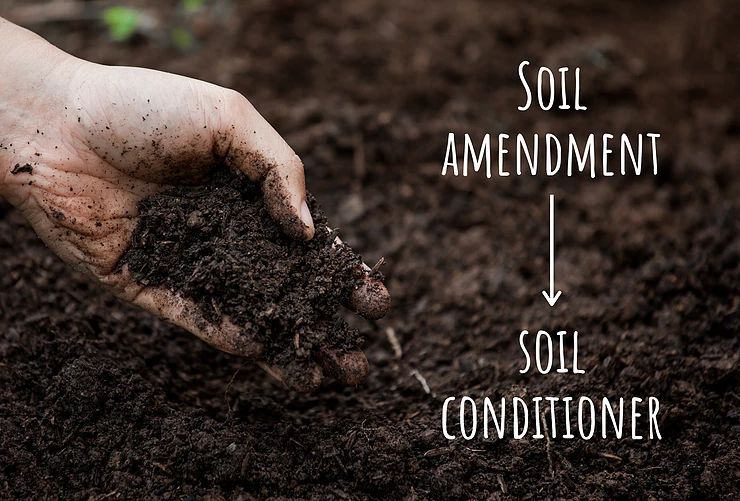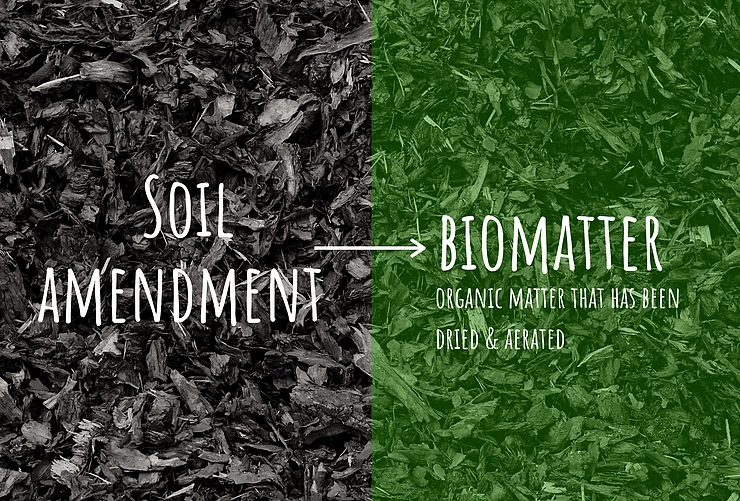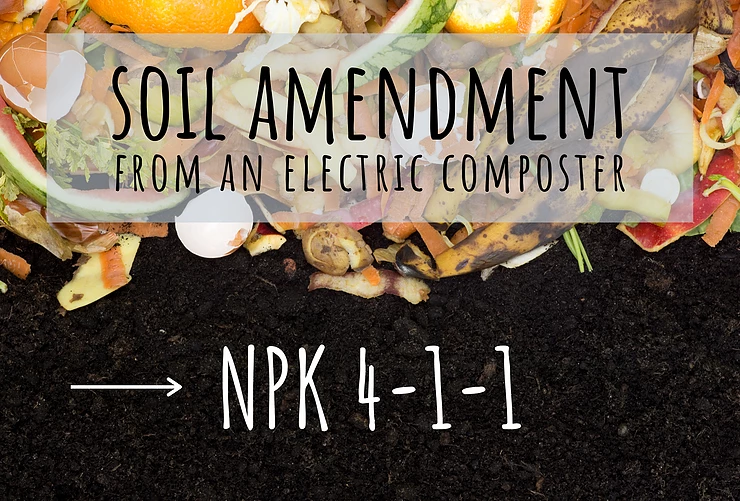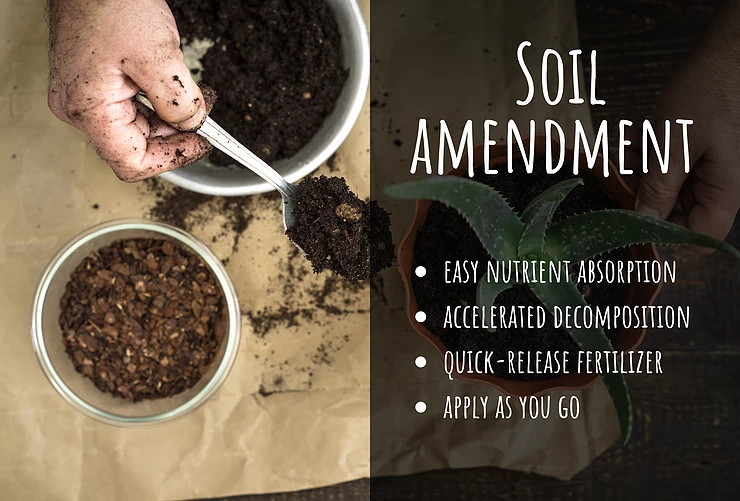
You may have heard of soil amendment in relation to the new craze over electric composters. Soil amendment in this context is the by-product produced by counter-top composters. But what is it really, and how do you use it to grow EXPLODE your plants into gorgeous new bloom?
Soil Amendment Is Not the Same As Fertilizer... But It’s Not NOT the Same Either...
Soil amendment is essentially a material that you can put in your garden to condition and improve the quality of your soil. This soil conditioner (as it is sometimes called) is dependent on what your soil needs.

For Example: Is your soil too acidic (low pH)? Lime or compost would be a good addition to your garden. Maybe your soil is too dry and can’t retain water, in which case carbon materials like shredded bark or paper would be a good addition.
If your garden is lacking nutrients and microbial activity (your plants look listless and grow very slowly and/or poorly), or you simply want to kick-start the growth process, then perhaps the amendment you’d want to choose has fertilizing components, like compost, manure or the by-product from electric composters.
What Is Soil Amendment Made Of, Exactly?
Again, that depends on what your soil needs. Soil amendment from an electric composter is composed of biomatter - which is a fancy word used to describe food waste that has been dehydrated aerobically and ground up into small particles.

The soil amendment from an indoor composter is very high in nutrients, and is a great way to spruce up your garden. Electric compost fertilizer is composed of 100% organic matter. This is the food waste you accumulate throughout your daily life (peels, shells, bones, etc). This makes your indoor composter soil amendment highly concentrated in key nutrients.
Gardens Love Soil Amendment - and Here's Why:
Your daily food waste has tons of important nutrients locked within its fibers and starches - nutrients that perhaps your body can’t benefit from, but which your soil definitely can. Plants utilize around 15 micronutrients in the soil, but the three most important are Nitrogen, Phosphorus and Potassium (or NPK). That’s why you see synthetic fertilizers with a rating that looks something like: 10-3-10.

Marvelous Macro-nutrients Electric composter fertilizer has an NPK rating of 4-1-1. This means that this soil amendment is extremely rich in nitrogen, with lower but still very prominent levels of the other two macronutrients. Giving these important nutrients to your soil in the form of a pre-digested (aerobically processed) powder form will allow plant roots to retrieve these nutrients very quickly. This powdery material also allows the existing microbes in the soil to target the biomatter in the amendment and continue to decompose the material naturally. You can think of an electric composter’s soil amendment as compost on fast-forward: rather than letting microbes reproduce over weeks, consuming carbon and nitrogen to aerate food scraps, you aerate the scraps first and then let your garden do the rest of the work after digging it into the soil.
Best of Both: Quick-Release & Slow-Release Fertilizer An electric composter's by-product is a quick-release version of a compost, which is naturally a slow-release form of fertilizer. Synthetic fertilizers release nutrients very quickly, which, if applied improperly, can burn plant roots, or cause a "nutrient glut" which slows their ability to absorb other important nutrients. Compost, on the other hand, releases nutrients slowly, over time. Essentially, electric composter soil amendment releases nutrients quickly, in the form of its NPK rating, but will continue to break down over time, releasing other nutrients contained in the biomatter over a period of weeks as the bacteria in the soil decompose the organic matter.
Superior To Synthetic Synthetic fertilizer is only a stop-gap measure to add the three basic macro-nutrients to your garden - nitrogen, phosphorus and potassium. Your garden needs more than just these three nutrients to thrive. The beauty of a soil amendment from an electric composter: it combines the convenience and powerhouse NPK of synthetic fertilizers with the natural, biodome-encouraging biomatter in compost, along with a host of micronutrients (like manganese, calcium, etc). Because your soil amendment is composed of organic material, it is less likely to burn your plant roots and cause a nutrient glut. It's the best of both worlds all over!

Source: https://www.foodcycler.com/post/soil-amendment-what-is-it-anyways




